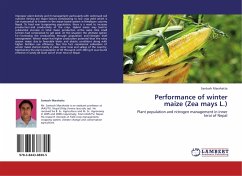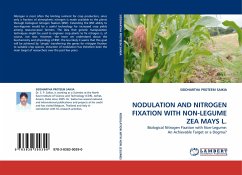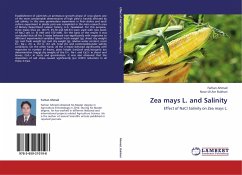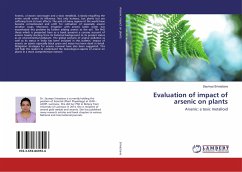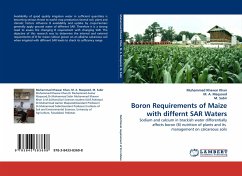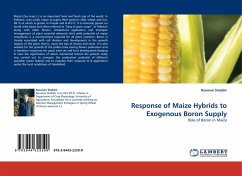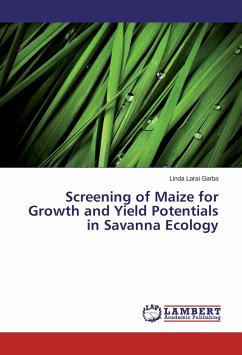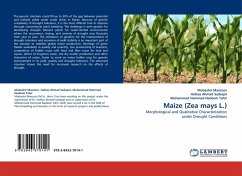
Maize (Zea mays L.)
Morphological and Qualitative Characterization under Drought Conditions
Versandkostenfrei!
Versandfertig in 6-10 Tagen
32,99 €
inkl. MwSt.

PAYBACK Punkte
16 °P sammeln!
The genetic solutions could fill up to 30% of the gap between potential and realized yields under water stress in Maize. Because of genetic complexity of drought tolerance, it is the most difficult trait to improve through conventional plant breeding. The challenge is even greater for developing drought tolerant plants for water-limited environments where the occurrence, timing, and severity of drought may fluctuate from year to year. The utilization of genetics for the improvement of drought tolerance and provision of yield stability is an important part of the solution to stabilize global ma...
The genetic solutions could fill up to 30% of the gap between potential and realized yields under water stress in Maize. Because of genetic complexity of drought tolerance, it is the most difficult trait to improve through conventional plant breeding. The challenge is even greater for developing drought tolerant plants for water-limited environments where the occurrence, timing, and severity of drought may fluctuate from year to year. The utilization of genetics for the improvement of drought tolerance and provision of yield stability is an important part of the solution to stabilize global maize production. Shortage of green fodder availability in quality and quantity, low productivity of livestock, competition of fodder crops with food and fiber crops for land and inputs, deficit of irrigation water, the dry matter production and other characters of maize, foster to work on maize fodder crop for genetic improvement in its yield, quality and drought tolerance. The aforesaid situation shows the need for increased research on the effects of drought.



